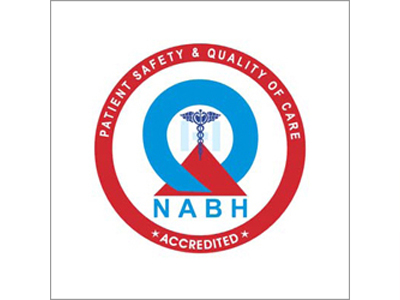World Glaucoma Week 2024: 10-16 March
[Hyderabad, 9 March 2024] Like every year, L V Prasad Eye Institute (LVPEI) is observing World Glaucoma Week (WGW) by organizing campaigns, talks, and interactive patient forums to raise public awareness about glaucoma for early detection and prevention. Glaucoma is an eye problem associated with increased eye pressure and is characterized by damage to the optic nerve, leading to irreversible blindness. Glaucoma is the most common cause of irreversible vision loss. The global estimates predict that by 2040, the number of patients with glaucoma will rise from 76 million to 111.8 million, with a majority of these patients residing in Africa and Asia.
World Glaucoma Week (WGW) is a joint global initiative of the World Glaucoma Association (WGA) and the World Glaucoma Patients Association (WGPA). This year, it is being observed from 10 to 16 March, focusing on Steroid-Induced Glaucoma.
Steroid-Induced Glaucoma: Understanding the Risks
Steroids, commonly used in various medications to treat inflammation-related conditions such as asthma, arthritis, and eye allergies, can have detrimental effects on ocular health when misused. In particular, the prolonged use of steroids can lead to steroid-induced glaucoma, a condition that raises intraocular pressure and can result in irreversible vision loss.
'In a study published by LVPEI, out of 4062 children with ocular allergy, 2.2% had steroid-induced glaucoma, and more than 30% of these children were blind by the time they reached us. Most of these children were using steroids without any prescriptions or much beyond the time for which the original prescription was issued,' quoted Dr Siddharth Dikshit, Consultant Ophthalmologist at LVPEI, Hyderabad.
Steroids can be present in any medication, including eye drops, ointments, inhalers, tablets, and injections. Steroids are also found in many non-pharmaceutical products, legally and discreetly, without any documentation in creams for treatment of acne or itching and fairness creams. Some forms of medicines, which are not regulated, also add steroids in their formulations without permission or documentation.
How can steroids harm the eye?
Steroids, when misused, can have many adverse effects, mainly when used over a prolonged duration, repetitively, or in heavy doses. We will concentrate on the ocular effects of steroids. Steroids can cause cataracts - this happens more commonly with tablets - which can be treated with cataract surgery. Steroids also cause Glaucoma by raising the intraocular pressure, which, when uncontrolled, can cause irreversible visual loss.
Can steroids cause blindness?
Steroid-induced glaucoma can cause blindness. Unfortunately, children with eye allergies are most susceptible to this. Owing to the quick relief of red and itchy eyes, these steroids can be readily procured over the counter regularly, leading to unmonitored treatment. Additionally, unscrupulous, unregistered and quite often ignorant practitioners prescribing steroids for nonspecific redness add to the problem.
Risk of developing Glaucoma?
In a limited study spread over 4 to 6 weeks, 5% of the population who didn't have glaucoma developed raised intraocular pressure, which can cause glaucoma. The numbers are much more likely to be higher if the use of steroids is prolonged or repetitive. If you use steroids in any of the above forms, you must get a comprehensive eye examination. If someone develops glaucoma due to steroids, the physicians can suggest alternative medications in place of steroids along with the necessary treatment for glaucoma.
When asked what else can be done to mitigate the risk of steroid-induced Glaucoma, Dr Dikshit says, 'We must ask our doctors if the prescription contains steroids, get an eye check-up done if the use is prolonged or repetitive, and use medications judiciously and only under medical supervision. People who are on prescribed steroids, such as eye drops, inhalers, ointments, or tablets, should also get their eyes checked regularly.'
About LVPEI: Established in 1987, L V Prasad Eye Institute (LVPEI), a World Health Organization Collaborating Centre for Prevention of Blindness, is a comprehensive eye health facility. The Institute has ten functional arms to its areas of operations: Clinical Services, Education, Research, Vision Rehabilitation, Rural and Community Eye Health, Eye Banking, Advocacy and Policy Planning, Capacity Building, Innovation, and Product Development. The LVPEI Eye Care Network has 290 Centres spread across Telangana, Andhra Pradesh, Odisha, and Karnataka in India. The institute’s mission is to provide equitable and quality eye care to all sections of society. The LVPEI’s five-tier ‘Eye Health Pyramid’ model, covering all areas of the community right from the villages to the city, provides high quality and comprehensive - prevention, curative, and rehabilitation – eye care to all. It has served over 36.89 million (3 crores 68 lakh people), with more than 50% entirely free of cost, irrespective of the complexity of care needed.
Search Tags: Glaucoma, Glaucoma Awareness, World Glaucoma Day, World Glaucoma Week, World Glaucoma Awareness, Steroid-induced Glaucoma, LVPEI, L V Prasad Eye Institute


